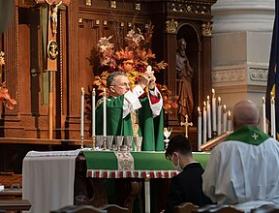Forgive.
It sounds easy. People often claim that they have forgiven, when, in fact, they are a long way out from anything that approaches actual forgiveness.
To forgive when there is no love is a practical impossibility. To forgive when the person or people who have harmed you refuse to admit that they’ve done anything wrong can seem as if you are agreeing with them. To forgive when they are actively continuing to harm either you or other people feels as if you are cooperating with your own abuse.
The greatest challenge of forgiveness in the face of truly horrific harms against you as a person such as rape, battering, murder and prolonged, vicious slander is that it raises the specter in your mind that you are in fact acquiescing to the thing that was done.
Too often, people say they have forgiven when what they are doing is becoming passive in the face of crimes against their own person. Forgiveness of horrific crimes against your humanity has to count the cost and know the full measure of the crime which is being forgiven.
People oftentimes push forgiveness on a victim of great violence and trauma far too soon. Everyone deserves the dignity of their anger. Anger can cleanse and heal. It can be an assertion of your humanity in the face of actions and people who have denied by what they have done to you that you are human. Anger is a necessary claim to your own worth and to the fact that those who hurt you were and are deeply wrong to do this to you.
It harms people to try to deny them their anger and push them into a faux forgiveness. When this happens, the forgiveness is not real, and the anger festers and turns inward.
Forgiveness comes after anger, not before it. Anger comes after numbness and shame and denial. Anger is the first step out of the darkness, and it is, at this point, a righteous assertion of your right as a child of God not to be treated this way.
But anger, if it takes on a life of its own, can become pernicious. Anger, if you stay there in it and just wind and rewind yourself around the shame and bitterness of what happened, becomes a cancer, eating at your soul. It can separate you from God. It, and the denial it feeds, the shame it covers, can isolate you in a small room with what happened to you. Either that, or it can push you into little enclaves of fellow sufferers who seem to be the only people who “get” you, who understand what you’re about.
The antidote for this illness — and at this point, your anger and shame have become a spiritual and emotional illness — is to face what happened to you in its full, hideously painful ugliness, and forgive.
But how to forgive without implying that what was done to you was nothing? Many times, victims of violence, in particular such things as rape, are faced with a world that belittles both them and what happened to them. They are sometimes called liars, or told that it was their fault. People back away from them and treat them as if they are not the same as they were before.
Rage is the only defense they feel they have. The humiliated rage of the victim is a shield against the claims that what happened was nothing and that they are nothing.
How do they lay down this shield of rage, which has been for many of them their only defense? When anger and resentment are the slender shards of broken self-respect that you hold onto in the face of what feels like public disregard, it can be more than you can face to lay them down and forgive.
That is the point where the grace of God is your only friend. The human portrait of that grace is Jesus, your fellow sufferer of injustice, shame and pain, hanging on the cross. The grace you need to forgive is found in the memory of God, almost bled out from a savage beating, staggering under the weight of the cross on which He was going to be murdered while the crowds jeered and the soldiers beat Him more.
You don’t need a circle of fellow sufferers to understand you and what you are going through.
He understands.
And because He forgave those who murdered Him, because He forgives you now of everything, including your anger and the hurtful things it’s made you do, you can forgive too.
Forgiveness, at this level, isn’t an act of will. It is an act of trust.
That trust is in Jesus Who tells you that even the hairs on your head are numbered, that there are many mansions in His Father’s kingdom, and He has prepared one for you.
You are a child of God, and this brutality you have suffered is an offense to God.
The world needs forgiveness. Without it, we will eventually destroy everything we love, including our civilization.
On an individual scale, you need forgiveness. We need to forgive one another and lay these heavy burdens of shame and bitterness down. We need to forgive. And we need to be forgiven.
This is Advent. Emmanuel is coming.












